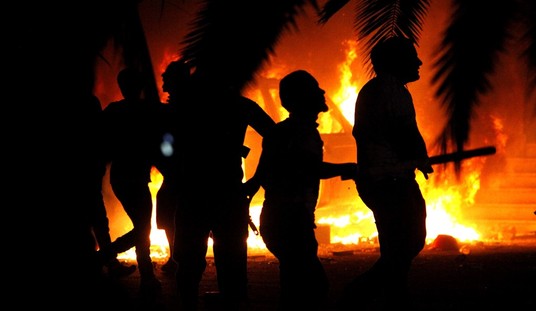When it comes to the Iran Nuclear Deal, I guess the silver lining (and I’m really, really stretching it here) is that we somewhat avoid a war in the immediate future. The country is war-weary, but that point is totally overshadowed by the fact that the country could acquire a nuclear weapon 13 years after the deal, according to President Obama (via Business Insider):
“What is a more relevant fear would be that in Year 13, 14, 15, they have advanced centrifuges that enrich uranium fairly rapidly, and at that point, the breakout times would have shrunk almost down to zero,” Obama said.
Well, that’s comforting. Here’s Guy’s July 2015 post, where nuclear experts expressed their concerns over the inspection requirements, which they felt were a bit light in the oversight and enforcement. Oh, and let’s not forget that Iran cheats; they’re good at that. So, given how bad the details surrounding this deal have been reported in the media over the course of the negotiations last year, it shouldn’t shock us that the International Atomic Energy Agency says that the agreement curtails its inspectors from reporting potential violations (via WFB):
The head of the international community’s nuclear watchdog organization disclosed Monday that certain agreements reached under the Iran nuclear deal limit inspectors from publicly reporting on potential violations by the Islamic Republic.
Yukiya Amano, chief of the International Atomic Energy Agency, or IAEA, which is responsible for ensuring Iran complies with the agreement, told reporters that his agency is no longer permitted to release details about Iran’s nuclear program and compliance with the deal.
Amano’s remarks come on the heels of a February IAEA oversight report that omitted many details and figures related to Iran’s nuclear program. The report sparked questions from outside nuclear experts and accusations from critics that the IAEA was not being transparent with its findings.
Amano disclosed in response to questions from reporters that the last report was intentionally vague because the nuclear agreement prohibits the IAEA from publishing critical data about Iran’s program that had been disclosed by the agency in the past.
“The misunderstanding is that the basis of reporting is different,” Amano said. “In the previous reports, the bases were the previous [United Nations] Security Council Resolutions and Board of Governors. But now they are terminated. They are gone.”
Most U.N. measures pertaining to Iran—including its military buildup and illicit work on nuclear technology—were removed following the nuclear agreement, which essentially rewrote the organization’s overall approach to the country.
The IAEA, which operates under the U.N. umbrella, must now follow the new resolutions governing the implementation of the nuclear pact, Amano said.
Sleep tight, folks.
Editor’s Note: This is a crosspost from Townhall.com.








Join the conversation as a VIP Member